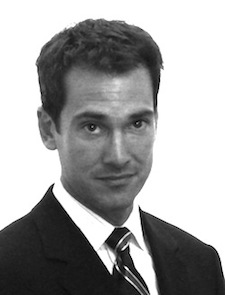
Executive Conversations is a HousingWire web series that profiles powerful people in the financial industry, highlighting the operations and the people that make this sector tick. In the latest installment, we sit down with Patrick Nackley, director of marketing and business development at Superior Home Services, to discuss how servicers can maximize their opportunities while following HUD default guidelines.
Q: Why have FHA loans received so much attention in the mortgage industry lately?
 A: FHA loan products are often the only loan that a number of buyers can qualify for. Many of these are first-time buyers and lack experience with home ownership. The lower down payment requirement is quite attractive for most borrowers. But, given the credit history of many FHA borrowers, these loans have a consistent percentage of defaults. Given the increase in originations of FHA loans in the last few years, the servicing industry is seeing the number of FHA defaults rise. It’s important for servicers to look for vendors who know the FHA product, the regulations that govern it, and how to handle the default process.
A: FHA loan products are often the only loan that a number of buyers can qualify for. Many of these are first-time buyers and lack experience with home ownership. The lower down payment requirement is quite attractive for most borrowers. But, given the credit history of many FHA borrowers, these loans have a consistent percentage of defaults. Given the increase in originations of FHA loans in the last few years, the servicing industry is seeing the number of FHA defaults rise. It’s important for servicers to look for vendors who know the FHA product, the regulations that govern it, and how to handle the default process.
Q: How do servicers have to approach FHA properties in default differently than other investors’ properties?
A: HUD requires insurable damage be repaired, and for properties to be in conveyance condition, prior to acceptance of title. If these requirements are not satisfactorily met, HUD will reconvey the property to the mortgage servicer. This is unique to FHA files. Freddie/Fannie require notification of property condition and hazard claim resolution, but rarely approve any remediation efforts prior to conveyance. HUD is totally different because it has created a framework where servicers have the obligation to remediate damage to a property prior to conveyance.
Q: What problems have you seen servicers run in to when they file a hazard claim on a damaged FHA property?
A: Many servicers receive notices of noncompliance or even reconveyances if there is damage to a FHA property during the mortgagee’s possession, and no hazard claim was filed. As servicers try to comply with HUD mandates, they can get backlogged and end up filing hazard claims on every damaged property just to be safe. While that’s understandable, it means they have to be careful about how the claim funds are managed after settlement. HUD routinely demands claim settlement funds be used to get the damaged property into pre-loss condition. So a short term solution to one issue can invite additional obligations for the servicer.
Q: What can servicers do to avoid this pitfall?
A: Servicers need to think programmatically about the approach to managing damaged HUD properties in default. What insurable damages exist at the property, and are insurance proceeds available? What needs to be done to the property to reach conveyance condition? Are any of these items the same? When a servicer uses hazard claim settlement funds to repair a property, it avails itself to the recoverable depreciation benefit, and the overhead and profit, that is part of the insurance contract. By exercising a right under an insurance contract, the servicer can remediate without undue corporate expense, while also comply with HUD guidelines. When repairing insurable damage, a servicer may also be able to address conveyance items already covered under the claim settlement, further offsetting corporate cost.
Q: How does Superior Home Services help servicers as they deal with these specific HUD requirements?
A: There is no substitute for experience. Superior has been focused on the remediation and conveyance of damaged FHA properties in the default cycle for 30 years. Our office understands the time and expense associated with remediation of these properties. Accordingly, no other vendor can better represent the mortgagee’s interests in the hazard claim process and remediation process than Superior. We understand what it takes, monetarily, to actually repair a damaged property, and will not accept anything less from an insurer in a hazard claim settlement.





